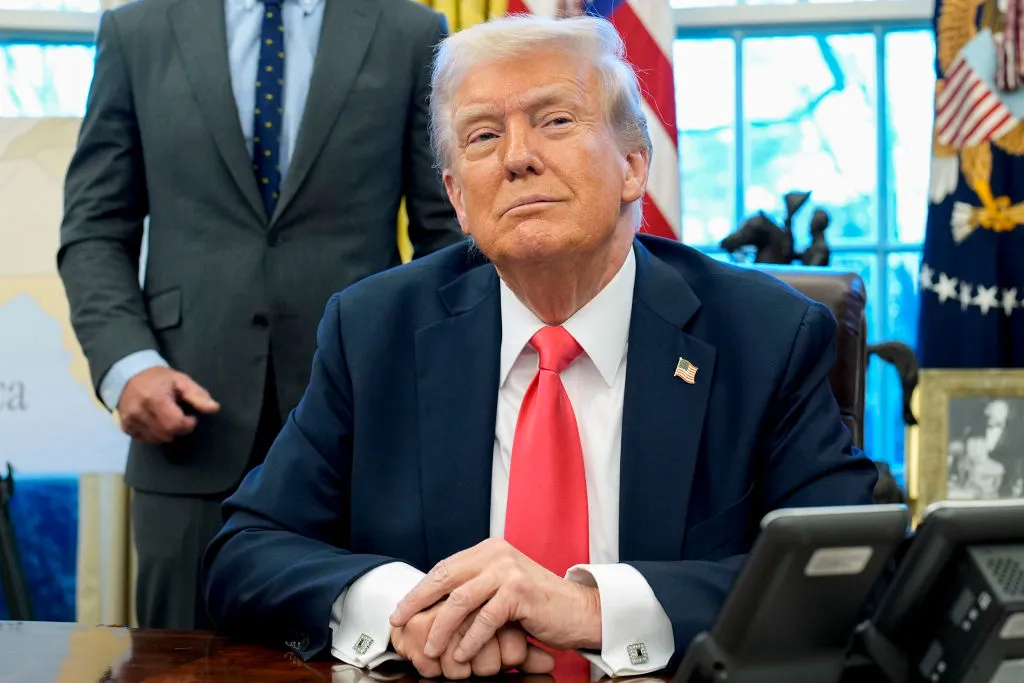Former U.S. President Donald Trump recently announced the introduction of a “gold card” program, a new pathway for wealthy individuals to gain U.S. residency and citizenship. The program, unveiled on February 25, sets a price of $5 million for applicants who wish to obtain green card privileges and, eventually, U.S. citizenship.
Trump in a press conference in the Oval Office reiterated that the mission is aimed at attracting “high income individuals” to the United States. He stated that applicants would undergo a rigorous vetting process but did not specify any restrictions based on nationality. Asked whether Russian oligarchs—individuals of substantial financial means, who are closely connected to the Kremlin—would be able to apply, the Took proof that they almost certainly would be able to do so.
“Yeah, possibly. I know some of the Russian oligarchs, they’re lovely guys,” remarked Trump. His remark attracted criticism particularly in the wake of existing geopolitical situation and Western sanctions against the Russian elites. He further commented on the financial status of Russian oligarchs, acknowledging that they are “not quite as wealthy as they used to be” due to economic sanctions. Nevertheless, he stated that still, such persons could still afford the $5 million base price tag of the gold version.
This announcement follows the changing profile of the U.S. position towards Russian elites. While previous administrations took steps to impose strict sanctions on Kremlin-linked oligarchs, the Trump administration had earlier shut down a government task force that targeted these individuals for their financial ties to the Russian government. This shift in policy also indicated a more conciliatory stance toward Russian elite, as compared with historical policies.
Simultaneously, immigration policy in the White House, after October 26, has been intensely restricted, ending all the existing programs permitting migrants to come into the US. These includes an effort spearheaded by former U.S. president Joe Biden, which created a route for Ukrainian asylum seekers to enter the U.S. Critics argue that while the Biden administration prioritized humanitarian efforts, Trump’s gold card policy prioritizes wealth over need.
Trump’s recent activities for Russia have only escalated the debate surrounding the U.S. government’s position of Russia. In the last few days he publicly stated willingness to seek a negotiation with Russian President Vladimir Putin. Reports have shown that Trump has arranged “direct talks” between U.S. and Russian officials, i.e., the participation in such talks is not included Ukraine. This exclusion raises concerns among foreign policy analysts, as Ukraine remains at the center of ongoing tensions between Russia and Western nations.
Trump also stated that he is open to striking a deal with Russia concerning rare earth deposits. Rare earth minerals play a critical role in next generation technology, which ranges from military hardware, to electronics, to renewable energy systems. The possibility of U.S.- Russia agreement in this area has been at the center of discussion regarding its geopolitical consequences, especially while Western countries have been aiming to limit their dependence on Russian resources.
The gold card initiative itself has drawn mixed reactions. Proponents claim that it is a very profitable prospect of the U.S. economy and it attracts high-net value individuals who are able to offer a large scope of the investment and their employment. According to critics, however, it is seen as an elitist policy based on ability to pay, more so than merite or humanitarian requirements. In addition, there has been concern regarding the risk of granting Russian oligarchs U.S. residency, perhaps ultimately citizenship, due to their ties to the Kremlin and to lingering global sanctions.
Investment-based residency programs are not new, according to immigration specialists. Related programmes, e.g., the EB-5 visa program, have been running for decades, using which potential immigrants to the USA can obtain U.S. residency by investing large amounts of money in businesses in the United States. Yet, the gold card scheme looks to be a more direct pathway to a citizenship and this brings up issues of national security and economic justice.
However, as the United States grapples with foreign policy towards Russia and with its approach to immigration, Trump’s proposal to offer gold cards continues to be a controversial debate. Despite its promise of financial returns, the possible geopolitical implications and ethical concerns around it being implemented are bound to spark controversy in the months to come.
“Stay updated with the latest news and insights – follow us at YPBB News on X for real-time updates and exclusive stories!”
